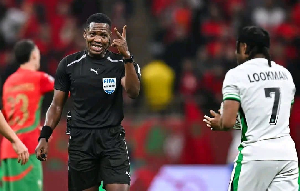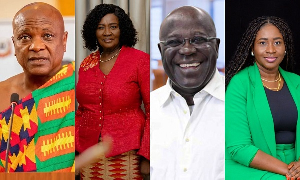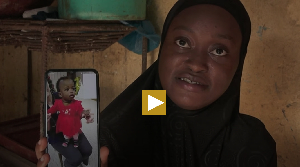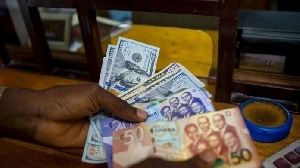– Part 1
By Kwame Okoampa-Ahoofe, Jr., Ph.D.
Perhaps the most profound and significant contribution of postcolonial Ghana’s second premier to the perennial discourse on democratic political culture on the African continent is Busia’s treatise titled Africa in Search of Democracy (New York: Praeger, 1967). In the dedicational page of the book, the firebrand advocate for elective governance and free thought and the public expression of the same writes: “I dedicate this book/ to the Youth of Africa/ to whom will fall the opportunity/ and honor of building in Africa/ democratic societies wherein every man and woman/ may live a life of dignity in freedom.”
For the author, Ghana’s independence in March 1957 provided a prime and auspicious opportunity for wisdom-guided governance that was tragically squandered on tyrannical acts of criminality. Of course, the latter allusion is unmistakably to the one-party dictatorship established by the Nkrumah-led Convention People’s Party. To the foregoing effect, therefore, the eminent sociologist and thinker notes: “This book is a humble contribution to Africa’s search for political wisdom whereby to avoid destruction. If any of my readers should think [that] I have pitched my hopes for democracy in Africa too high, I can only say that I have not written as one who is a stranger to political life in Africa. I took an active part in [the] political life [of] my own country [of] Ghana[,] where I was leader of the Parliamentary Opposition and of the United Party which opposed the tyrannical rule of Nkrumah and his Convention People’s Party. I have written this book while in voluntary exile, still continuing to oppose and expose the corruption, inefficiency and oppression of the Nkrumah regime; constantly bearing in my heart a harrowing distress at the sufferings of my former colleagues and countrymen imprisoned without trial, denied justice, ignominiously humiliated, some even maltreated to death; and painfully conscious of the reckless waste of our country’s rich human and material resources” (Africa in Search of Democracy “Preface” ix-x).
Earlier on, Busia quotes a brief passage from Plato’s Protagoras as follows: “Prometheus stole the mechanical arts and fire with them, and gave them to man. Thus man had the support of life, but political wisdom he had not…. Having no art of government, they evil entreated one another and were in [the] process of destruction”(“Preface” Africa in Search of Democracy ix).
In sum, it was such wisdom as facilitated by the sedulous “art” of democratic governance which Ghana’s first postcolonial leader selfishly and unwisely ignored that plunged the country into the kind of socioeconomic, cultural and political nightmare, anomie and confusion that gripped and convulsed the country on the eve of the all-too-predictable and auspicious overthrow of the Convention People’s Party regime. And it is the inevitable restoration of such political wisdom that is apt to return Ghana into her rightful place among the comity of the most civilized, prosperous and respectable nations of the world.
For Busia, Western socialist political culture of the kind subscribed to by President Nkrumah – the so-called Scientific Socialism – was abjectly vulgar, godless and woefully inadequate as an operable political mechanism capable of succoring to the psycho-cultural needs of Africans, an incurably spiritual and religious people. In essence, the crassly material – or such creature – comforts of technology obsessively espoused by fanatical ideologues of “Scientific Socialism” had to be necessarily complemented by the psychical and/or spiritual needs of the proverbial African Personality, even as both Senegal’s President Leopold Sedar Senghor and Kenya’s Mzee Jomo Kenyatta organically espoused: “It is the heritage of religion which explains, for example, President Leopold Sedar Senghor’s concept of African Socialism. In refutation of allegations of atheism leveled against him by his political opponents, he answered: ¶ ‘The anti-federalists have accused us of being atheists, Marxists, and of outlawing religion. Surely this smacks of propaganda. Can we integrate Negro-African cultural values, especially religious values, into socialism? We must answer that question once and for all with an unequivocal yes.’ ¶ He went on to explain the fundamentally religious basis of his concept of socialism in conformity with the African religious view of life and of community. ¶ The Government of Kenya takes a similar position where its Sessional Paper on African Socialism carries the [following] assertion: ¶ ‘Another fundamental force in African traditional life was religion which provided a strict moral code for the community. This will be a permanent feature of African Socialism.’”
Consequently, the author of Africa in Search of Democracy emphatically observes: “Much of the aid to the new States of Africa tends to emphasize the provision or the achievement of material things. Africa’s search is not only for things but also for spiritual values that give meaning to life. Account should be taken of the religious element of the cultures of Africa, and of the spiritual revolution taking place on the continent. This would contribute to a better understanding of its problems and aspirations. ¶ In illustration of this, we may quote a statement of the Kenya Government: ¶ ‘No matter how pressing immediate problems may be, progress towards ultimate objectives will be the major consideration. In particular, political equality, social justice, and human dignity will not be sacrificed to achieve more material ends more quickly. Nor will these objectives be compromised today in the faint hope that by so doing they can be reinstated more fully in some unknown and far distant future’”(11-12).
The preceding also further elucidates Dr. Danquah’s admonishment to President Nkrumah, his former protégé, that the highest human value inheres in the deliberate induction of a salutary democratic culture, as well as the liberation of the human mind and spirit, not in the construction of massive architectural landmarks, or edifices, in the gaping absence of the foregoing. On this score, Ghana’s current president, Dr. John Evans Atta-Mills, strikingly mirrors Nkrumah’s woeful lack of any meaningful appreciation for indigenous African religion and culture. Recently, for instance, President Atta-Mills issued an executive edict summarily prohibiting the pouring of libation at all state and/or national ceremonial affairs, which prompted the retired Roman Catholic Archbishop of Kumasi, Dr. Peter Akwasi Sarpong, to reprimand the apparently clinically alienated Ghanaian chief-of-state. And on the latter score must also be promptly pointed out that Dr. Sarpong, an Oxbridge-educated scholar and anthropologist, is also a prolific authority on Akan-Ghanaian culture. And, of course, it further needs to be observed that his nauseatingly neocolonialist temperament is in no way an accident, for President Atta-Mills is a self-proclaimed acolyte of his country’s first postcolonial premier.
For the author of Africa in Search of Democracy, there can be absolutely no gainsaying the fact that the very structure of many a traditional African society was inherently and functionally democratic. Consequently, any attempt to facilely consign postcolonial democratic culture, wherever this may be found on the African continent, among the category of the “benefits” of the latter’s encounter with Western colonial imperialism ought to be clearly and objectively envisaged to lack empirical validity: “The best kind of democracy is the one which enables as many people as possible to share in the making of decisions, and in the actual functions of government. In the Ashanti system, the fact that each lineage, village, or part of a chiefdom managed as much of its own affairs as was consistent with the unity of the whole chiefdom[,] enabled many to share in decision-making in local affairs; for the head of each unit was, like the chief at the center, obliged to act in concurrence and with the advice of his own local council. ¶ However autocratic a chief was permitted to appear, he really ruled by the consent of the people. There was a balance between authority on the one side, and obligation on the other. A chief or king had the power to raised taxes, or exact tribute, or ask his people to work on his farm, or even call them to take up arms to defend the chiefdom. But he had the corresponding obligation to dispense justice, or to protect the interests of his people, or ensure their welfare by certain ritual acts and observances. The ruler’s subjects knew what duties they owed him; they also knew what duties he owed them, and they could exert pressure to make him discharge those duties. ¶ There can be no true democracy where there is no free expression of opinion in public affairs or criticism of the ruling body. Any member of the community could take part in the public discussion of community affairs, or in public hearings and ‘anyone – even the most ordinary youth – will offer his opinion, or make a suggestion with an equal chance of being heard[,] as if it proceeded from the [mouth of] the most experienced sage’”(24-25).
In the preceding sense, therefore, Africa, for the most part, ought to be squarely envisaged to comfortably rank among the enviable profile of modern civilized polities, in the context of political and cultural sophistication. Earlier on, in order to logically and objectively arrive at the foregoing conclusion, the great sociologist and thinker calls for a critical examination of the same: “There are protagonists who have attempted to justify contemporary authoritarianism in some of the new African States by contending that it is in accord with the spirit and practice of traditional political systems; others, on the contrary, have maintained that traditional political institutions were democratic, and that it was the European Colonial Powers who destroyed democracy in Africa. This controversy calls for an examination of the traditional systems. Traditional political systems developed in the context of communities which were families, or extensions of families, or tribes; they were kinship groups sharing a common territory, a tradition of common descent, and a common culture. The communities were characterized by poor communications, and physical isolation. The physical isolation was a consequence of the poor communications. It meant that the communities tended to be isolated from each other, and each community, turned in upon itself, fostered strong local traditions, and a strong degree of conformity”(Africa in Search of Democracy 17).
The scholar-thinker also notes that what appears to have placed the West, in general, politically in advance of much of Africa is the fact of macro-, or impersonal, institutional structures having relatively more rapidly replaced the primacy of the sort of intimate kinship bonds that continue to largely regulate social intercourse on the African continent: “In Africa[,] the concept of citizenship has continued to be more closely associated with kinship than with territory. The difference is essentially one of degree of emphasis, but its institutional expression is important for political organization. The concept that ‘Englishmen are now the people who inhabit England’ emphasizes the idea that the territory of England is the bond of union between Englishmen. It does not preclude bonds between kinsmen; but the latter have grown weak. The secondary role has been given expression in the State and public institutions which provide the security and the services for which people once looked to their family and kinsfolk”(Africa in Search of Democracy 19).
The latter situation, even as many Africanist and Afrocentric historians and social scientists have had occasion to point out, may be the direct result of the deliberate retardation of Africa’s political development by European colonialist intervention. At least this is partly the contention of highly recognized and distinguished Africanist scholars, historians and political scientists like Basil Davidson and Ali Mazrui.
*Kwame Okoampa-Ahoofe, Jr., Ph.D., is Associate Professor of English, Journalism and Creative Writing at Nassau Community College of the State University of New York, Garden City. He is Director of The Sintim-Aboagye Center for Politics and Culture and author of a forthcoming book titled “Danquah Versus Nkrumah: In the Words of Richard Mahoney.” E-mail: okoampaahoofe@optimum.net.
###
Opinions of Sunday, 25 March 2012
Columnist: Okoampa-Ahoofe, Kwame














